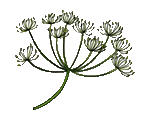|
ESSENTIAL OILS
There were at least 12 essential oils used in the Bible for
various purposes (medicinal, incense and anointing);
Frankincense, Myrrh, Cedarwood, Cypress, Sandalwood, Cassia,
Spikenard, Hyssop, Myrtle, Cistus (Rose of Sharon), Onycha
and Galbanum.
|
 |
Cassia: Is steam distilled from the branches,
leaves and petals of the Cassia tree and was an
ingredient in Moses' holy anointing oil. It was
mentioned in ancient medical records, the Ebers
Papyrus, from 16th century BC. Often used in
perfumes (a cinnamon smell) and to support emotional
well-being. It was a natural remedy to support the
immunity system. Cassia was mentioned in the Bible over
50 times. It was used in the
Holy Anointing Oil
recipe from Exodus.
|
 |
 Cedarwood:
Distilled from the bark of the Cedar tree.
Egyptians used it to embalm the dead. It was also used
in traditional medicine and incense and for spiritual
cleansing. Cedarwood is mentioned 25 times in the Bible.
The drawing (right) is the Lebanon Cedar. Cedarwood:
Distilled from the bark of the Cedar tree.
Egyptians used it to embalm the dead. It was also used
in traditional medicine and incense and for spiritual
cleansing. Cedarwood is mentioned 25 times in the Bible.
The drawing (right) is the Lebanon Cedar.
|
 |
 Cistus
(Rose of Sharon): Used for respiratory
support. The gum of the Cistus shrub healed cuts
and scrapes quickly and was first noticed by shepherds
thousands of years ago. It is used to open the third eye
and to support the immune system. Jesus was called the
"Rose of Sharon" in many Bible verses (as Cistus, which
is thorn less). Cistus
(Rose of Sharon): Used for respiratory
support. The gum of the Cistus shrub healed cuts
and scrapes quickly and was first noticed by shepherds
thousands of years ago. It is used to open the third eye
and to support the immune system. Jesus was called the
"Rose of Sharon" in many Bible verses (as Cistus, which
is thorn less).
|
 |
Cypress: Was used primarily for its cleansing smell
and came from the Cypress tree which symbolize
life after death. It was also used to calm angry
emotions. Noah's ark was constructed of Cypress wood.
|
 |
 Frankincense: Considered one of the most spiritual
oils in the world and has been used in religious
ceremonies for thousands of years. The oil comes from
the Boswellia tree which must be at least 40
years old before any oil can be extracted. It was
mentioned 22 times in the Bible. Ancient uses were for
holy anointing oil, meditation, embalming, perfume,
transitioning to death, incense and to anoint newborn
kings and priests. Frankincense: Considered one of the most spiritual
oils in the world and has been used in religious
ceremonies for thousands of years. The oil comes from
the Boswellia tree which must be at least 40
years old before any oil can be extracted. It was
mentioned 22 times in the Bible. Ancient uses were for
holy anointing oil, meditation, embalming, perfume,
transitioning to death, incense and to anoint newborn
kings and priests.
|
 |
Galbanum: A holy anointing oil and was mixed with
Frankincense as holy incense which was burned 24 hours a
day in temples. Although it does not have a high
vibration frequency, it is known to dramatically raise
the frequency of other oils (such as Frankincense and
Sandalwood). It supports the digestive, immune,
respiratory and circulatory systems, among others.
|
 |
 Hyssop: Steam distilled from stems and leaves of
the Hyssop plant and means "holy herb" in Hebrew.
Used for spiritual cleansing and to "forgive sins" and
for mediation and religious ceremonies. It is also used
for the immune system and for overall emotional health.
Hyssop is mentioned 12 times in the Bible. Hyssop: Steam distilled from stems and leaves of
the Hyssop plant and means "holy herb" in Hebrew.
Used for spiritual cleansing and to "forgive sins" and
for mediation and religious ceremonies. It is also used
for the immune system and for overall emotional health.
Hyssop is mentioned 12 times in the Bible.
|
 |
Myrrh: Comes from the Frankincense family and is
mentioned in an ancient Egyptian list of prescriptions.
It was used in oral hygiene products where it is still
used today. It is also an antioxidant and for skin
support and was used for incense and perfumes. Myrrh is
mentioned 157 times in the Bible.
|
 |
 Myrtle: Steam distilled from the leaves of the
Myrtle tree and means "chaste beauty" in Latin. The
scent if fresh and clean and similar to Eucalyptus. It
was used in religious ceremonies, for the respiratory
system, skin, hair and nails. Today it is used to
balance the glandular system and thyroid. It is high in
antioxidants and used for balancing of energy. Myrtle
was mentioned in the Bible six times (as Hadassah). Myrtle: Steam distilled from the leaves of the
Myrtle tree and means "chaste beauty" in Latin. The
scent if fresh and clean and similar to Eucalyptus. It
was used in religious ceremonies, for the respiratory
system, skin, hair and nails. Today it is used to
balance the glandular system and thyroid. It is high in
antioxidants and used for balancing of energy. Myrtle
was mentioned in the Bible six times (as Hadassah).
|
 |
Onycha: Was one of the components of Ketoret
(incense) and appears in Exodus. It came from the gum of
the Onycha tree and was called "fingernail" or
"claw." It was used as a cleanser in religious
ceremonies to cleanse and purify the spirit. Calms the
emotions, is good for the skin and cleansing wounds.
Onycha was an ingredient in the sacred incense
used in Exodus 30:34.
|
 |
Sandalwood: Steam distilled from the bark of the
Sandalwood tree. It was used to calm the nerves, to
support the lymphatic and cardiovascular system, and for
its sweet fragrance. It was also used in religious
ceremonies, for embalming, as an aphrodisiac and for
mediation and prayer. Today it is used for emotional
balancing such as removing stress. Note, it was called
Aloe in the Bible.
|
 |
 Spikenard: A very spiritual oil that comes from the
same plant family as Valerian (Caprifoliaceae, a
perennial flowering plant). It is distilled from the
plant roots. It was very expensive and only people of
high ranking used it as a perfume and for general health
and skin. It is also a soothing oil that calms emotions
and is high in antioxidants. Spikenard was mentioned 17
times in the Bible. This is the oil that Mary Magdalene
used to anoint Jesus' feet (John 12:3). Spikenard: A very spiritual oil that comes from the
same plant family as Valerian (Caprifoliaceae, a
perennial flowering plant). It is distilled from the
plant roots. It was very expensive and only people of
high ranking used it as a perfume and for general health
and skin. It is also a soothing oil that calms emotions
and is high in antioxidants. Spikenard was mentioned 17
times in the Bible. This is the oil that Mary Magdalene
used to anoint Jesus' feet (John 12:3).
|
I am a rose of Sharon, a lily of the valleys.
Song of Solomon 2:1

|

